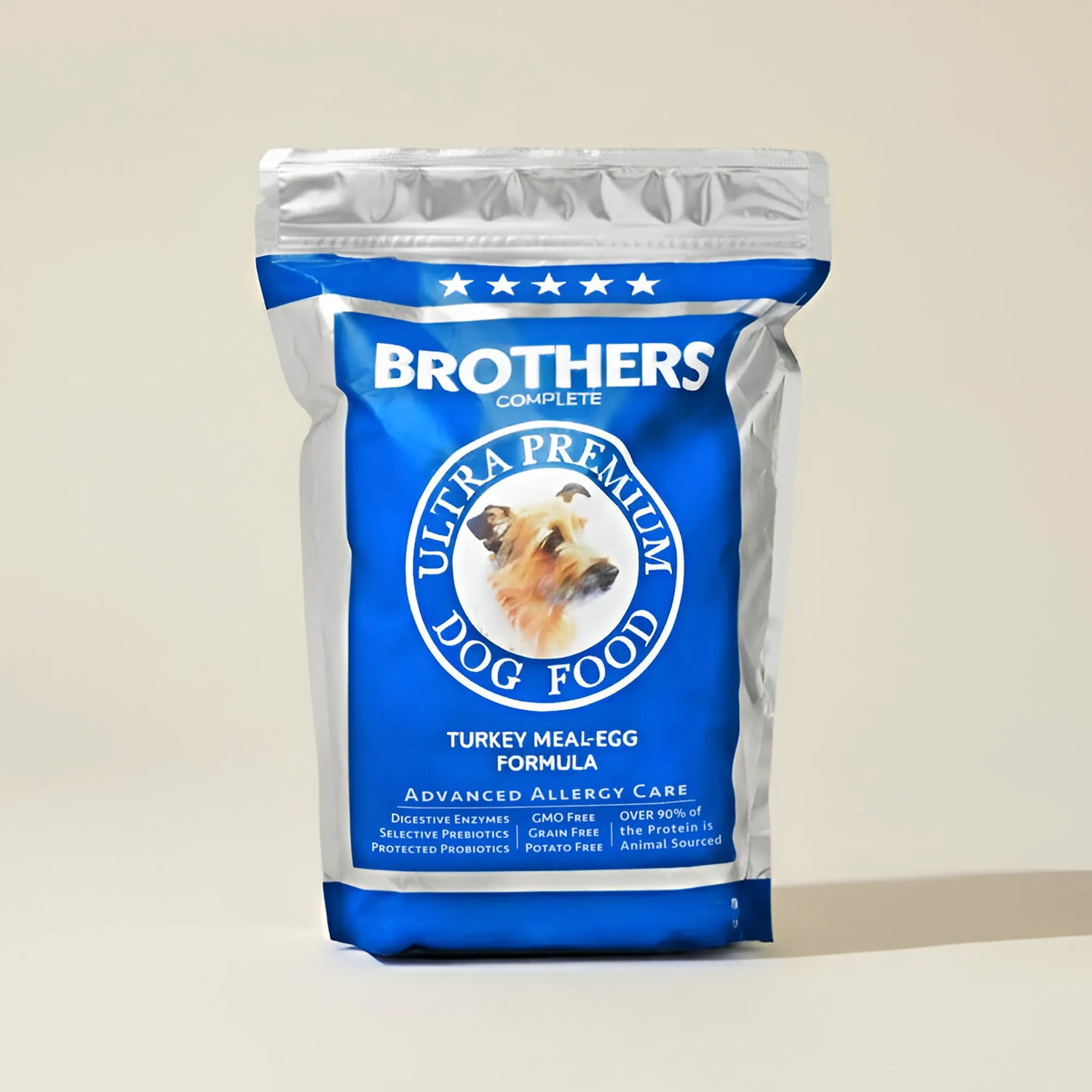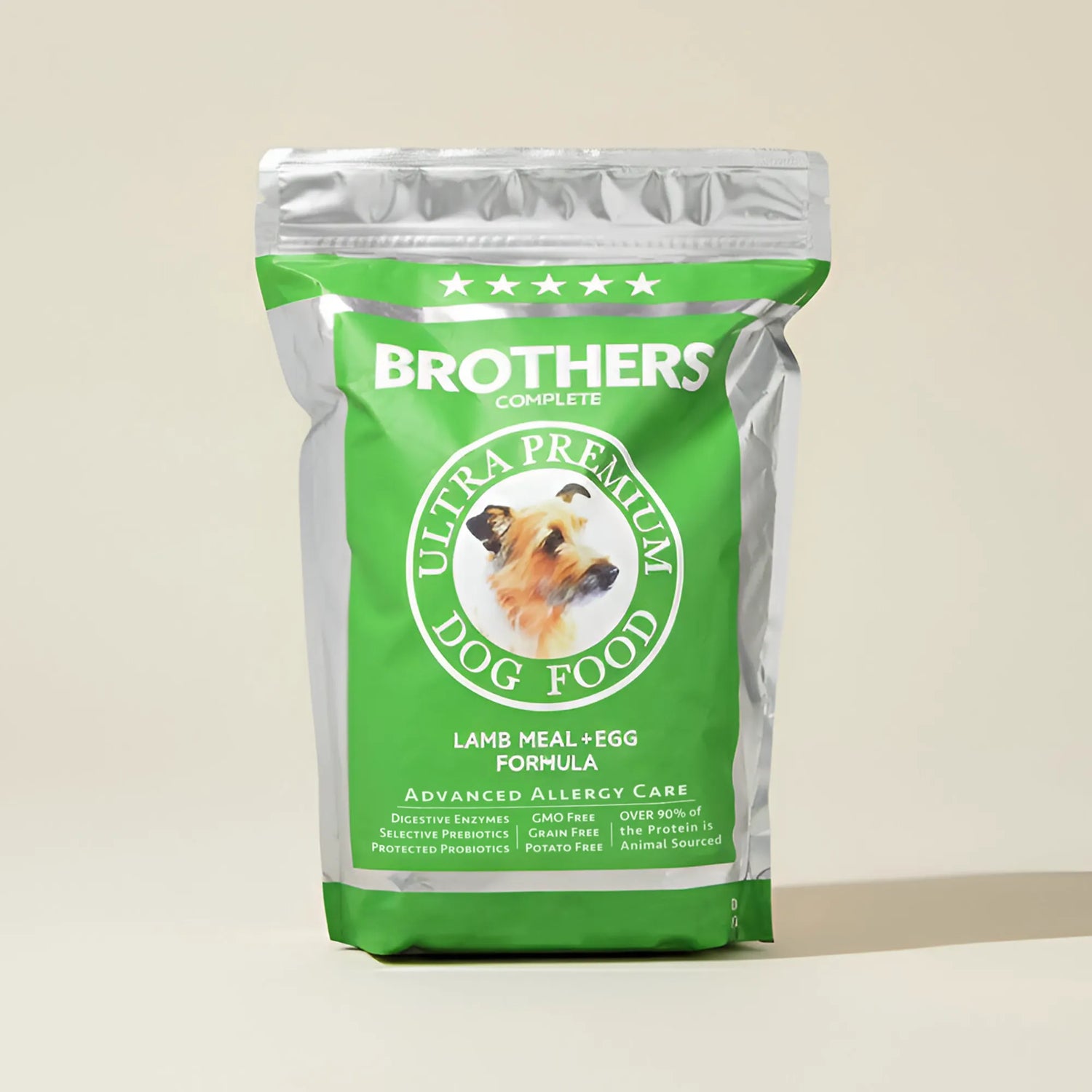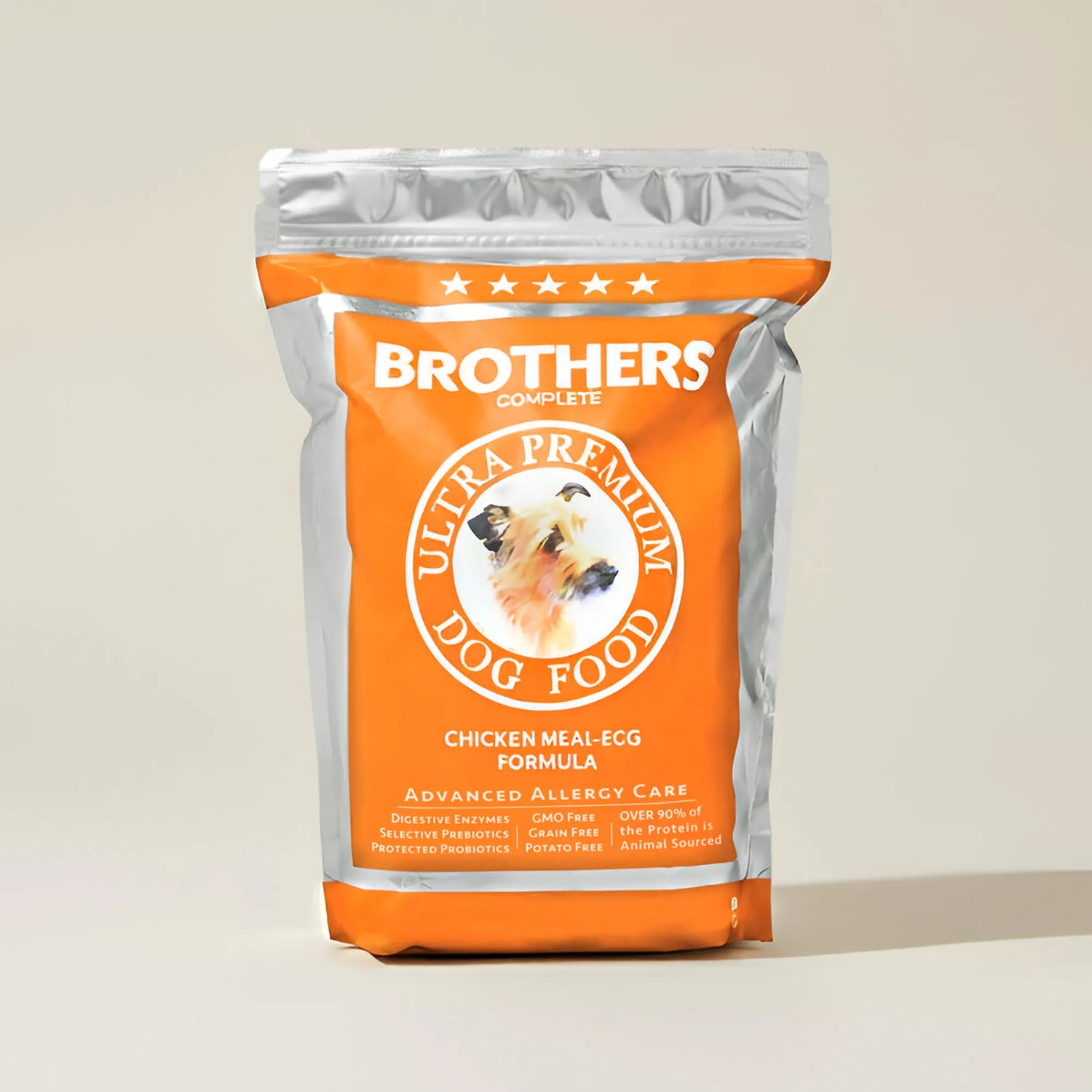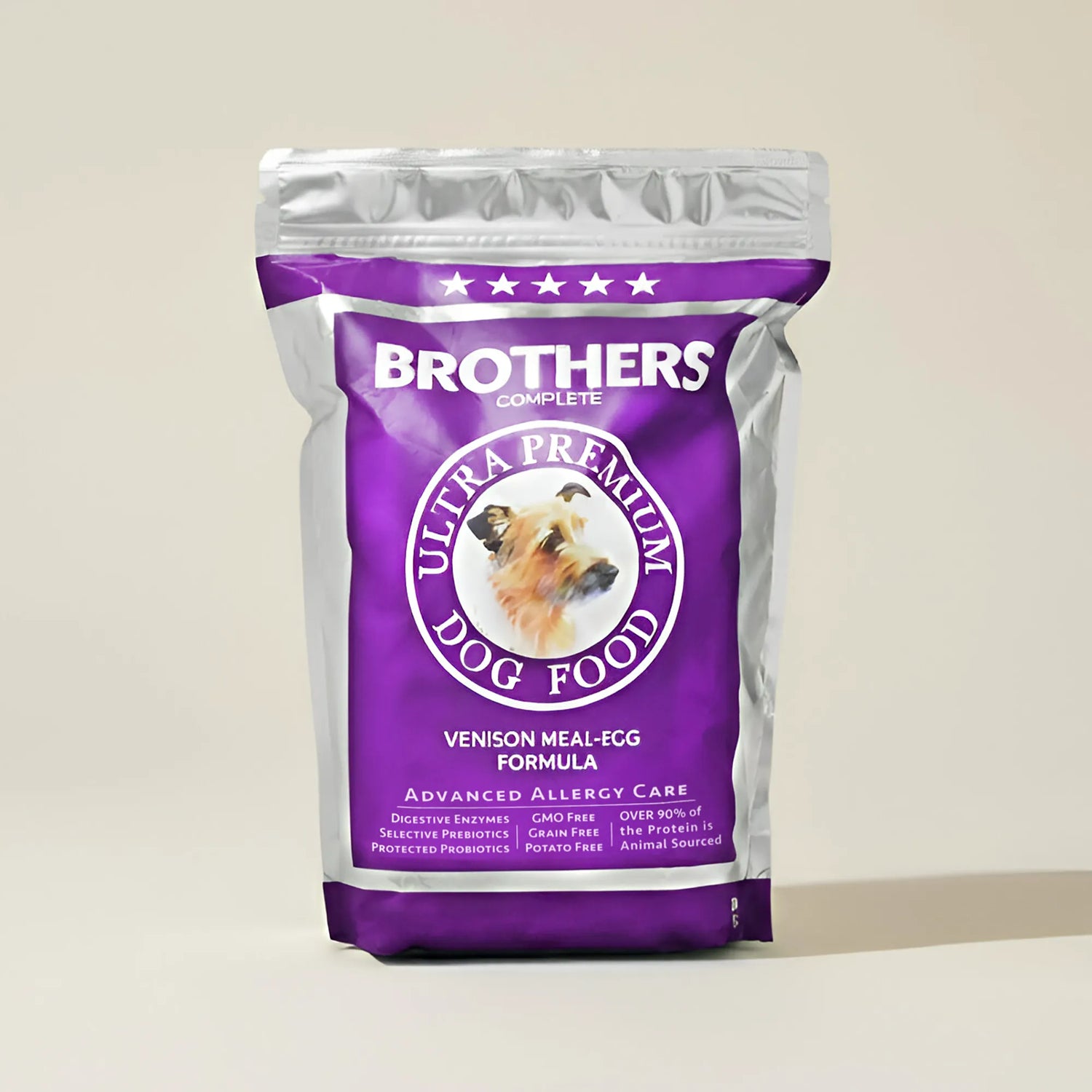Everything You Need to Know Before Switching
Grain free dog food has become one of the most talked-about trends in the pet nutrition world. Many owners choose it to help with allergies, digestive health, or to provide what they believe is a more natural diet for their dogs. But the truth is more nuanced. Grain-free diets can be great for certain dogs, while others may benefit more from high-quality, grain-inclusive formulas.
This guide will walk you through exactly what grain-free dog food is, who it’s best for, the potential risks, and how to choose the best grain-free dog food for your pup’s specific needs — while answering the most common questions owners have before making the switch.
What Is Grain-Free Dog Food?
Grain free dog food simply means a recipe without cereal grains like:
- Wheat
- Corn
- Rice
- Barley
- Oats
Instead, it uses alternative carbohydrate sources, including:
- Sweet potatoes
- Peas
- Lentils
- Chickpeas
- Tapioca
By removing grains, the idea is to reduce potential allergens, lower the carbohydrate load, and in some cases, boost protein content. This is especially true in grain-free dry dog food formulas that focus on meat as the first ingredient.
Why Do Owners Choose Grain-Free Dog Food?
Here are the most common reasons:
- Food sensitivities or allergies – Dogs allergic to wheat, corn, or other grains may show skin irritation, ear infections, or digestive distress that improves on a grain-free diet.
- Digestive health – Some dogs handle alternative carb sources better than grains.
- Weight and muscle maintenance – Higher protein diets help maintain lean muscle mass.
- Personal preference – Some owners prefer grain-free because they believe it mimics a dog’s ancestral diet.
Is Grain-Free Dog Food Good for Dogs?
It can be — but it depends on the dog.
Grain free dog food may be a great fit if your dog:
- Has been diagnosed with a grain allergy or intolerance
- Shows chronic digestive issues with grain-inclusive foods
- Requires a higher protein-to-carb ratio for activity or muscle support
For other dogs, whole grains can be beneficial. They offer fiber, antioxidants, and essential nutrients that support gut health and overall wellness. Grain free dog food is not inherently healthier — it’s simply an alternative that works well for certain cases.
Is Grain-Free Dog Food Bad?
No, but there are concerns you should know about.
The FDA has been investigating a possible link between some grain free dog food diets and canine dilated cardiomyopathy (DCM), a serious heart condition. While no direct cause has been proven, the issue seems linked to recipes high in legumes like peas and lentils without proper nutritional balancing.
Things to consider before switching:
- Choose a formula with animal protein as the primary ingredient.
- Look for a variety of carbohydrate sources rather than over-reliance on legumes.
- Consult your vet about taurine supplementation if recommended.
Why Is Grain-Free Dog Food Risky for Some Dogs?
The main concerns include:
- Nutritional imbalance – Removing grains without replacing their nutrients can create deficiencies.
- Excessive legumes – High levels may impact taurine absorption.
- Marketing hype – Some brands promote grain-free as “premium” without actually improving ingredient quality.
Does Grain-Free Dog Food Cause Heart Problems?
Some studies suggest a correlation between certain grain-free dog food formulas and DCM, especially in large-breed dogs. But correlation is not causation — genetics, breed predisposition, and overall nutrition also play a role.
Best practices to reduce risk:
- Select an AAFCO-approved grain-free diet from a reputable manufacturer.
- Avoid legume-heavy recipes without other animal-based proteins.
- Monitor your dog’s health and get regular vet check-ups.
What Is the Best Grain-Free Dog Food?
The best grain-free dog food depends on your dog’s needs, but here are must-have features:
- High-quality protein source first: Supports muscle maintenance and energy
- Balanced fatty acids: Improves skin, coat, and joint health
- Low-glycemic carbs: Helps maintain stable energy
- Fortified with vitamins & minerals: Prevents nutritional gaps
- AAFCO certified: Ensures complete and balanced nutrition
Example proteins found in quality grain-free formulas:
- Turkey – Lean and easy to digest
- Salmon – High in omega-3s for skin and joints
- Beef – Rich in protein and iron
- Chicken – Highly palatable and versatile
You can explore Brothers Dog Food’s grain-free options for formulas that combine high-quality proteins with nutrient-rich, digestible carbs.
Grain-Free vs. Grain-Inclusive Diets
Choosing between grain-free and grain-inclusive comes down to your dog’s individual health profile.
Grain-Free Pros:
- May reduce symptoms in dogs with grain allergies
- Often higher in protein and animal-based ingredients
- Alternative carbs like sweet potatoes may be gentler for some dogs
Grain-Free Cons:
- Can be more expensive
- May lack certain nutrients if not properly balanced
- Possible link to DCM in some dogs
Grain-Inclusive Pros:
- Offers fiber, vitamins, and minerals from whole grains
- Usually more affordable
- No proven reason to avoid grains in healthy dogs
Grain-Inclusive Cons:
- Not suitable for dogs with grain allergies
- Lower protein levels in some formulas
If your dog thrives on a high-quality grain-inclusive diet, there’s no nutritional reason to switch. But if you see chronic digestive issues, skin irritation, or allergy symptoms, a grain-free dry dog food could be worth trying.
Signs Your Dog May Benefit from Grain Free
Consider talking to your veterinarian about switching to grain-free dog food if your dog has:
- Ongoing itchy skin or paw licking
- Recurring ear infections
- Chronic loose stools or digestive distress
- A confirmed grain allergy diagnosis
How to Transition Safely to Grain Free
A slow transition is key to avoiding stomach upset:
- Days 1–3: 25% new food, 75% old food
- Days 4–6: 50% new food, 50% old food
- Days 7–9: 75% new food, 25% old food
- Day 10: 100% new food
During the transition, monitor your dog’s appetite, stool consistency, and energy levels.
FAQs
It can be a great option for dogs with confirmed grain allergies or chronic digestive issues. For healthy dogs, it’s simply an alternative — not automatically better.
Some studies have found a possible link between certain grain free diets and heart problems like dilated cardiomyopathy (DCM). A direct cause hasn’t been proven, but it’s safest to choose a balanced formula and work with your vet.
If the recipe relies too heavily on legumes or isn’t nutritionally balanced, it can create deficiencies or digestive issues. Every dog’s needs are different.
The best options use high-quality animal protein as the first ingredient, provide balanced fats and vitamins, and meet AAFCO standards. Brothers Dog Food offers grain-free recipes designed with these principles in mind.
Final Takeaway
Grain-free dog food can be a valuable option for certain dogs, particularly those with allergies or sensitivities to grains. But it’s not a magic fix for every pet. The best choice depends on your dog’s health history, lifestyle, and nutritional needs.
If you decide to make the switch, choose a high-quality grain-free formula that prioritizes animal protein, avoids excessive fillers, and is backed by nutritional testing. And always consult your veterinarian to ensure your dog’s diet supports long-term wellness.
Explore Brothers Dog Food’s grain-free collection - crafted with premium proteins and gut-friendly ingredients to support your dog’s long-term health.








